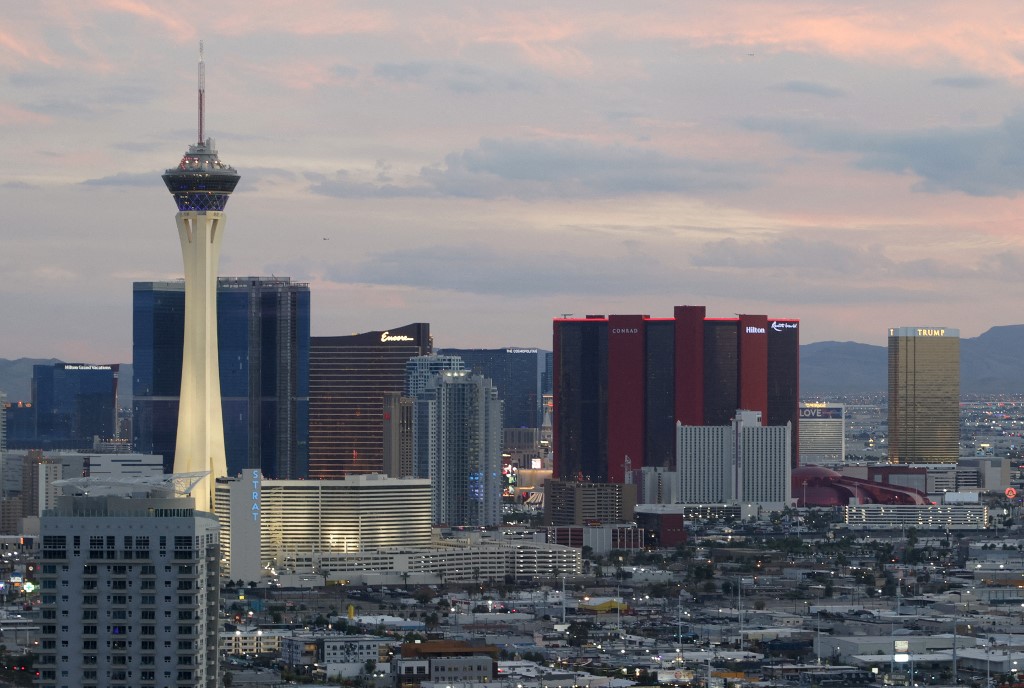Reports indicate a predictable decline in tourism to Las Vegas, following several months of struggling numbers. However, some believe that the Las Vegas Strip will rebound, while others feel they have priced themselves out for good.
Has Sin City Lost Its Luster?
Many believe the decrease in tourism to Las Vegas is multi-layered. In contrast, others feel escalating prices have pushed the average vacationer away and driven them into the welcoming arms of more affordable destinations.
But if we look at the entirety of the gaming market, we see that while the Las Vegas Strip has grown increasingly unaffordable, there is likely more to the story.
Las Vegas used to have exclusivity over gaming. If someone wanted to make a legal bet or go to a glitzy casino replete with fine dining destinations and world-class entertainers, Las Vegas was the only option. But that is no longer the case.
Casinos have sprouted up all over the nation, and betting on sports is as convenient as opening an app in the palm of one’s hand.
September’s third-quarter tourism and gaming report had more bad news for Las Vegas resort operators. According to the Las Vegas Convention and Visitors Authority, September showed an 8.8% decline in tourism, with not even 3.1 million visitors making the pilgrimage to Sin City. This follows a disturbing pattern that has spanned nine months in which Las Vegas visitation is down 8% year-over-year.
June and July were especially quiet, with tourism down in the double digits in both months. “It was a difficult summer,” Caesars Entertainment CEO Tom Reeg said on the company’s third-quarter earnings conference call last week. “There has definitely been softness in leisure demand for Las Vegas.”
“Softness” is one polite way of putting it, but it has not deterred many executives from believing that this malaise is simply a bump in the road that will eventually straighten itself out.
Hope Springs Eternal
Stifel Financial gaming analyst Steven Wieczynski told investors not to panic, stating, “Fear that Vegas is dead, overpriced, etc., is just flat out incorrect.”
Following the pandemic, he said the Strip benefited from “pent-up demand,” but that now the market is returning more to its “normal softness during the sweltering summer months. Now, as the world has returned to normal, we believe the Strip will see a more normal seasonality moving forward.”
Caesars CEO Tom Reeg was also enthusiastic about a Las Vegas resurgence, stating, “I don’t discount that there are areas in our business and in Las Vegas that might have gotten over their skis pricing-wise. But the value proposition in Vegas stacks up versus just about anywhere that you could want to travel. What you can do while you’re in town is the breadth of what’s available. I line that up with any city in the world. So, we feel fantastic about Vegas fundamentally.”
Of course, executives like Reeg get paid the big bucks to instill confidence in their employees and strategize a blueprint to bring wayward customers back to the fold.
We should note that while the Las Vegas Strip has suffered, Stephen Cootey, Executive Vice President, Chief Financial Officer, and Treasurer of Red Rock Resorts, said his resort, which sits just off the Strip and downtown area, has reported the highest quarterly net revenue in the company’s 49-year history.
“While the Strip relies heavily on tourism, conventions, and hotel-driven revenue, we are anchored by a gaming-centric model. We’re focused on a deeply loyal customer base,” said Cootey. “We feel locals offer a stronger value proposition, which is driving more people to our casino, which includes accessible pricing, convenient locations, personalized service, and that continues to resonate not only with our local guests, but it’s starting to increasingly resonate with our out-of-town guests as well.”







